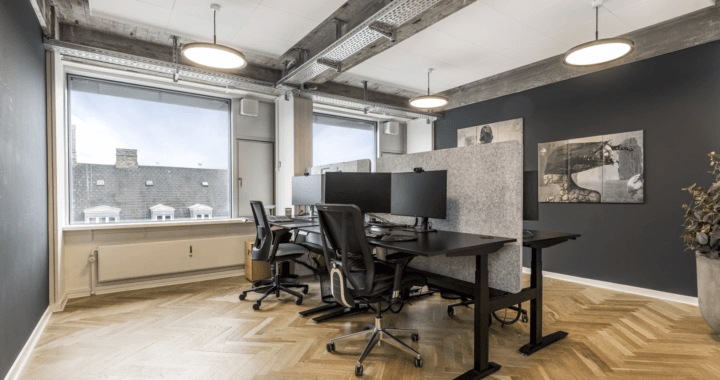Once dominated by high-rise business towers and corporate offices, downtown Portland is undergoing a radical transformation. Today, 62% of vacant office buildings in the area have been converted into hybrid spaces that seamlessly blend coworking hubs with micro-apartments—reshaping the city’s real estate landscape and offering a compelling glimpse into the future of urban work-life integration.
This shift is not just a response to vacancy rates—it’s a strategic adaptation to evolving workplace demands, remote work trends, and the rising need for flexibility and community. As businesses reassess their office needs, coworking spaces have emerged as a powerful solution for companies and individuals looking for dynamic, innovative environments that promote collaboration, productivity, and growth.
The Rise of Coworking in Portland
The appeal of coworking in Portland is no longer limited to freelancers or startups. From tech companies and digital creatives to small agencies and remote-first corporations, businesses are embracing shared spaces for their flexibility and cost-effectiveness. According to recent real estate trends, Portland’s coworking capacity has grown by more than 40% in the last three years—largely fueled by increased demand for hybrid work models and employee-friendly environments.
But Portland’s take on coworking adds a twist: community is at its core. Many of the new spaces offer more than just desks and meeting rooms—they’re ecosystems designed to spark networking opportunities, foster community collaboration, and support startup success through shared knowledge, mentorship, and resource pooling.
Blended Spaces: Coworking Meets Micro-Apartments
Why combine coworking with micro-apartments? The answer lies in the city’s vision for work-life balance. Professionals now have the ability to live and work within the same building—reducing commute times, minimizing costs, and encouraging greater employee satisfaction. This mixed-use model not only addresses Portland’s housing challenges but also enhances the vibrancy of downtown neighborhoods, with 24/7 activity instead of the 9-to-5 grind.
These conversions have also prompted a reevaluation of workspace design. Expect more wellness-focused environments, sustainable materials, biophilic interiors, and tech-enabled layouts that cater to both productivity and comfort. The days of sterile cubicles are numbered—replaced by lounges, phone booths, rooftop terraces, and even meditation pods.
How MatchOffice Simplifies the Search
Finding the right space in this fast-evolving market can be overwhelming. That’s where Matchoffice steps in. As a trusted global platform specializing in flexible workspaces, MatchOffice connects companies with coworking options that meet their unique needs—whether it’s a creative hub in the Pearl District or a modern hybrid space near the waterfront.
By offering real-time listings, transparent pricing, and easy comparisons, MatchOffice streamlines the office relocation process, helping businesses identify the ideal location for growth. With curated listings across Portland, MatchOffice ensures that entrepreneurs, digital nomads, and growing teams alike can find their perfect fit in this thriving coworking ecosystem.
Real Success, Real Impact
Plenty of Portland-based businesses have already experienced the benefits. Take the example of BrightLoop, a tech startup that moved into a coworking space in downtown Portland last year. “Our team productivity skyrocketed after the move,” says founder Emily Sanchez. “We’ve collaborated with other businesses in the space, landed new clients through networking, and our employee retention improved significantly thanks to the lively work environment.”
Another success story is CraftStudio, a boutique design agency that grew its client base by 70% after relocating to a flexible workspace in a converted office tower. The team attributes much of their growth to daily exposure to other creatives and opportunities for informal collaboration and idea-sharing.
What’s Next: Industry-Specific and Sustainable Coworking
Looking ahead, Portland is poised to see a rise in niche coworking spaces tailored to specific sectors such as fintech, game development, or the arts. These specialized hubs will offer targeted resources, industry-specific events, and deeper networking potential.
Simultaneously, the focus on sustainability is gaining traction. More spaces will prioritize LEED-certified buildings, energy-efficient systems, and healthy indoor environments, appealing to eco-conscious professionals and aligning with Portland’s green values.
In a city known for its innovation and adaptability, Portland’s coworking movement is more than a trend—it’s a blueprint for the future. With tools like Matchoffice making it easier than ever to navigate this evolving landscape, businesses have every opportunity to thrive in these innovative environments that support both creativity and community.

